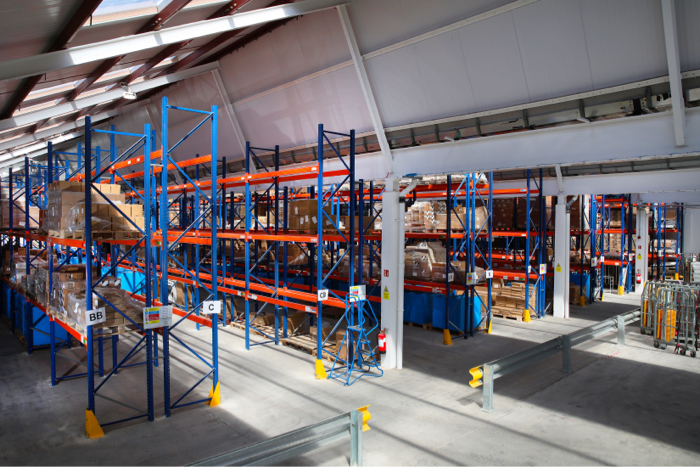Your eCommerce brand is growing fast. What started as a manageable side hustle is now a full-blown business, and your current setup is starting to feel the strain. Packing orders is eating into your day, your stockroom’s bursting at the seams, and delivery mistakes are becoming more common.
At this point, outsourcing fulfilment isn’t just an option, it’s a logical next step. But as you start weighing up 3PLs, a wave of uncertainty can set in:
But as you start researching options, the doubts creep in.
- “Will I lose control of my business?”
- “Isn’t it only for massive retailers?”
- “Won’t it slow everything down?”
If any of that sounds familiar, you’re not alone.
Misconceptions about 3PLs are incredibly common, especially among fast-growing brands making the leap from in-house fulfilment. The good news? Most of these worries are based on outdated info or flat-out myths.
In this article, we’ll bust some of the biggest 3PL misconceptions and help you make an informed decision for your business.
What Is a 3PL, and Why Do Businesses Use One?
A third-party logistics provider (3PL) is a company that handles part or all of your eCommerce fulfilment, including warehousing, pick and pack, shipping, and returns.
Rather than hiring staff and renting your own storage facility, you can partner with a 3PL to streamline operations, reduce costs, and scale faster.
For example, at Cloud Fulfilment, we help growing UK-based eCommerce brands manage multichannel fulfilment with ease. Whether you’re selling on Shopify, Amazon, or your own site, we integrate with your systems and take care of the entire back-end logistics.
But let’s look at what’s getting in the way: the myths.
The Top 3PL Misconceptions (And the Truth Behind Them)

1. “I’ll lose control of my business if I outsource fulfilment”
This is one of the most common fears. And yes, in theory, outsourcing means letting go of day-to-day fulfilment tasks. But in practice? You’re actually gaining better oversight.
Modern 3PLs (especially tech-first providers like Cloud Fulfilment) offer real-time order tracking, stock visibility, and platform integration, so you always know what’s going on. You can still make decisions and respond to customer needs, just without doing it all yourself.
2. “3PLs are only for large companies”
Maybe this was true a decade ago. Today, 3PLs are more accessible than ever.
In fact, some of the biggest gains come when small-to-mid-sized businesses outsource. You avoid fixed overheads, reduce delivery errors, and free up time to focus on growth.
Cloud Fulfilment offers scalable pricing and flexible storage that works whether you’re shipping 100 or 10,000 orders a month.
3. “A 3PL won’t understand my product or industry”
Good 3PLs don’t treat you like just another SKU.
Providers like Cloud Fulfilment specialise in industry-specific solutions, from beauty products to subscription boxes to fashion fulfilment. Our pick and pack workflows are tailored to your product type, whether that’s delicate skincare jars or seasonal apparel.
4. “Outsourcing slows everything down”
Some brands think a 3PL will add extra layers between them and the customer. But in reality, outsourcing often speeds things up.
We partner with major carriers through the Parcel Monkey Group, meaning your orders are dispatched through optimised routes and at competitive rates. With warehouse automation, your orders can be picked, packed, and out the door in hours, not days.
5. “3PLs are too expensive”
Here’s the thing: In-house fulfilment isn’t free. Once you add up rent, wages, packaging materials, software, and the time you’re not spending on marketing or product development, it’s probably costing you more than you think.
A 3PL helps you turn fixed costs into variable ones. You pay only for what you use and scale up when needed. Plus, economies of scale and negotiated courier rates make a huge difference.
6. “I’ll lose my brand’s personal touch”
This one’s especially common among DTC brands and totally valid. You’ve worked hard to build your brand, and fulfilment is part of that experience.
That’s why providers like Cloud Fulfilment offer custom packaging, branded inserts, and even gift wrap services. Your customer’s unboxing moment stays 100% on-brand, just handled more efficiently.
7. “My tech stack won’t work with a 3PL”
You’re on Shopify. Or maybe WooCommerce and Amazon, with a bit of eBay thrown in.
A good 3PL should plug into all of that seamlessly.
Cloud Fulfilment’s software integrates with your existing tools and sales platforms, automating order imports, inventory updates, and tracking numbers. No need to juggle spreadsheets or chase couriers.
How to Choose the Right 3PL Partner
Now that we’ve cleared up the myths, here’s how to evaluate your options:
- Tech compatibility: Do they integrate with your store?
- Industry experience: Have they worked with your product type before?
- Scalability: Can they grow with you?
- Speed and accuracy: What’s their fulfilment SLA?
- Pricing: Are there hidden fees?
A good 3PL won’t just ship your parcels; they’ll support your growth strategy.
Don’t Let Misconceptions Slow You Down
Outsourcing your logistics can feel like a big step. But with the right partner, it’s a leap forward, not a loss of control.
By busting these myths, you’re one step closer to building a fulfilment strategy that actually supports your growth, not hinders it. Cloud Fulfilment helps ambitious eCommerce brands scale with smart, affordable 3PL solutions.
Frequently Asked Questions about 3PL
What does 3PL stand for?
3PL stands for “third-party logistics.” It refers to outsourcing logistics operations like warehousing, picking, packing, and shipping to a specialised provider.
Is using a 3PL suitable for small businesses?
Absolutely. Many small and mid-sized eCommerce brands use 3PLs to reduce overhead, improve shipping times, and free up resources.
How do I know if a 3PL is right for my business?
Look at your order volume, warehouse space, and time spent on logistics. If fulfilment is slowing your growth, it might be time to outsource.
How much does a 3PL typically cost?
Costs vary depending on order volume, storage needs, and value-added services. Many 3PLs offer pay-as-you-go pricing and volume discounts.
Can I use a 3PL if I sell on multiple platforms?
Yes, most modern 3PLs support multichannel fulfilment and integrate with platforms like Shopify, Amazon, and eBay.


